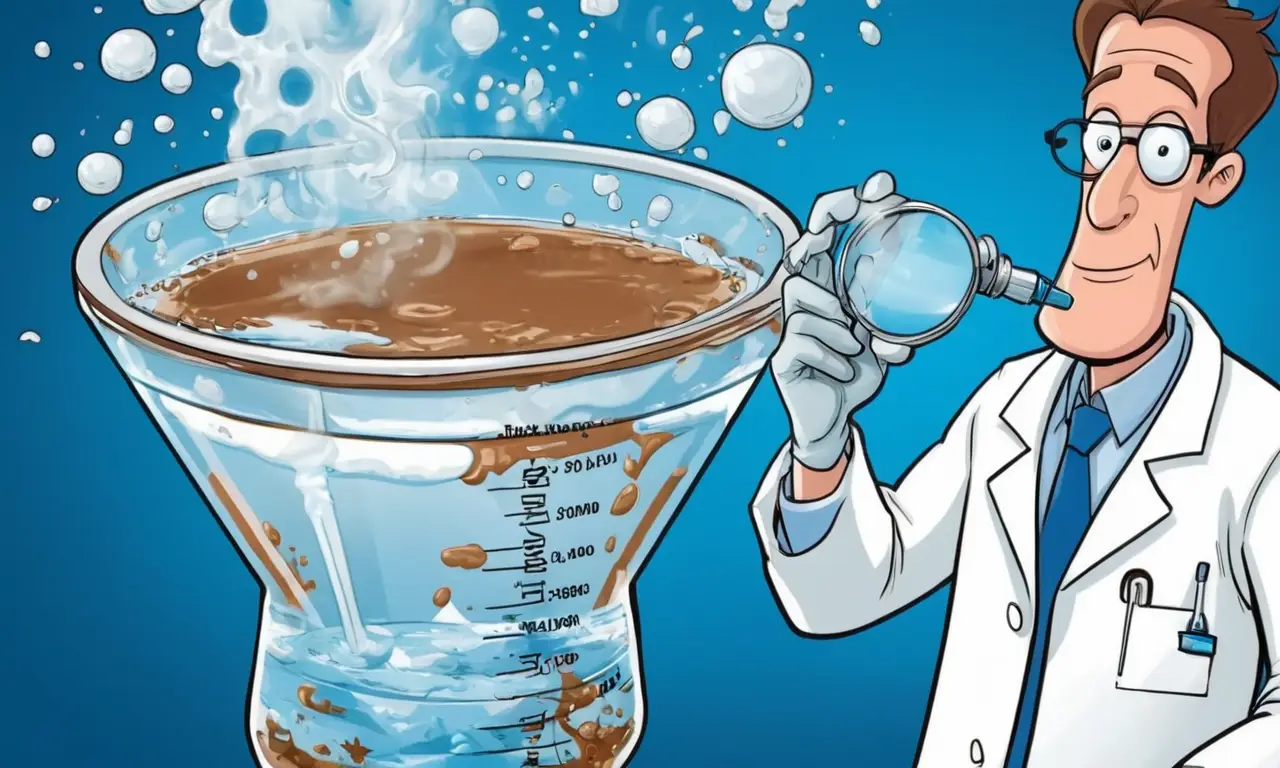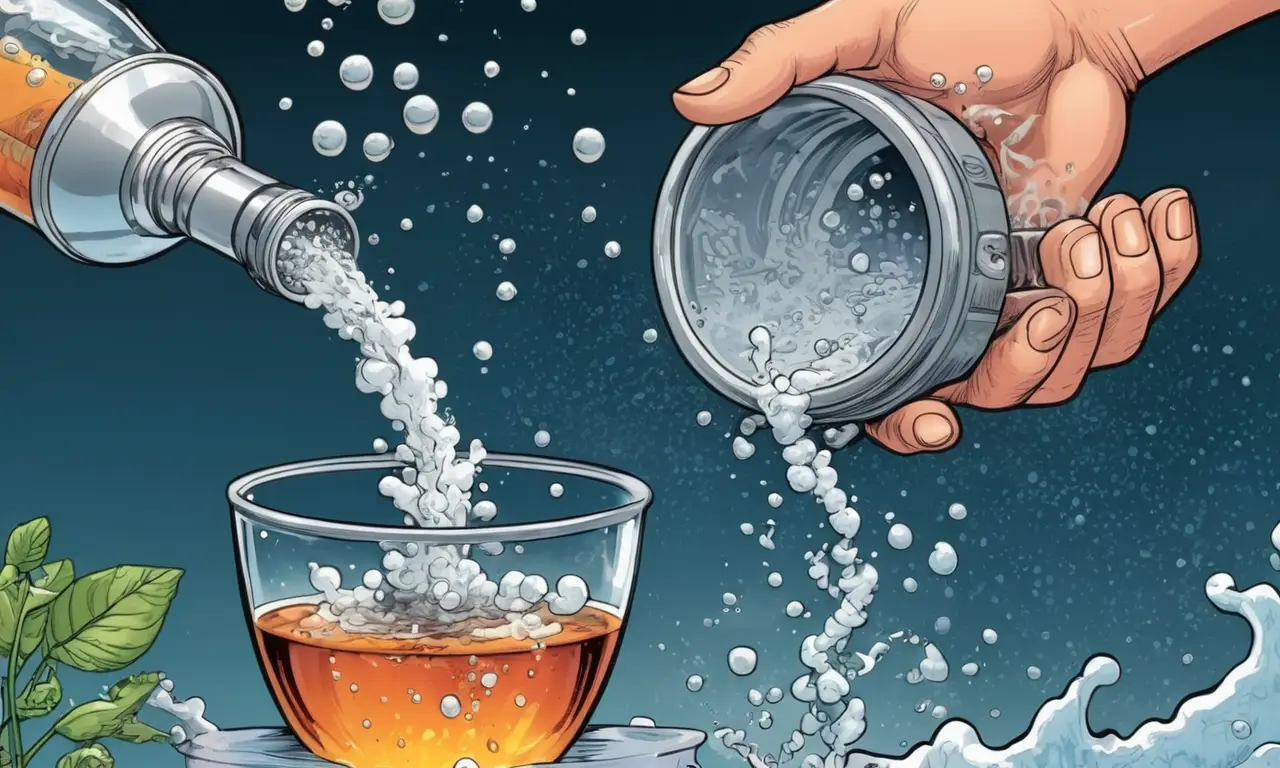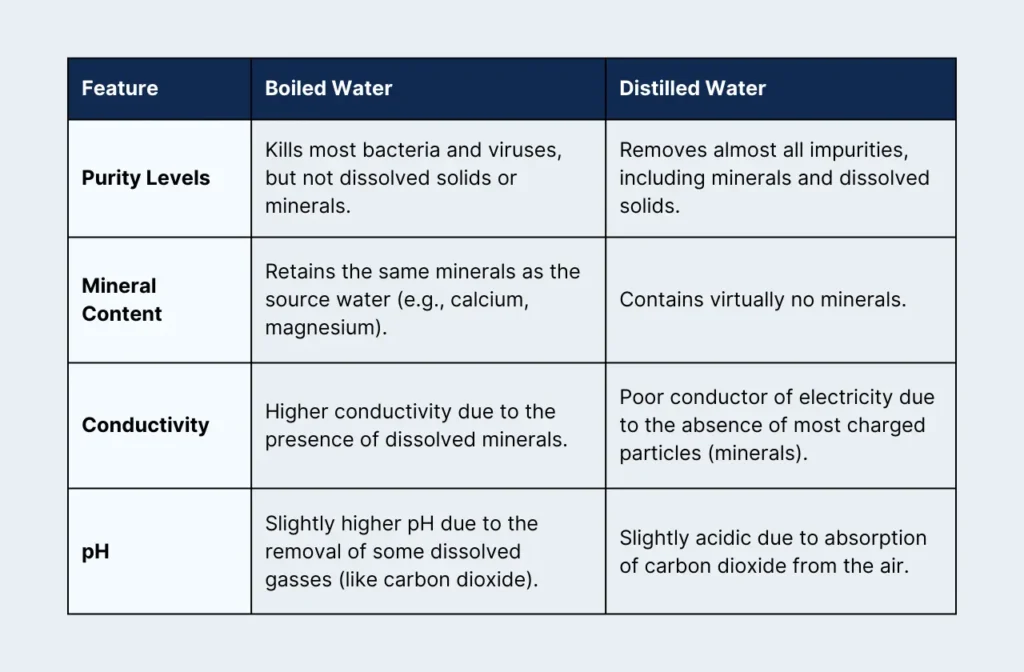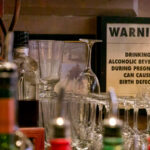Water is essential for life, but not all water sources are created equal. While tap water is generally safe to drink, it often contains impurities that can affect its taste and quality. This leads many people to wonder about the differences between boiled water and distilled water, especially when considering their purity levels. This article will delve into the distinctions between these two types of water, exploring their respective purification processes and applications.
We’ll begin by examining the fundamental differences between boiled water and distilled water, then dive deeper into the concept of water purity and the various impurities commonly found in water sources. Next, we’ll explore the distillation process in detail, highlighting its effectiveness in removing impurities. Finally, we’ll discuss the specific applications where distilled water is preferred over other types of water.
Boiled Water vs Distilled Water
When it comes to does boiled water equal distilled water, the answer is a resounding no. While both methods aim to purify water, they achieve this through distinct processes. Boiling water involves heating it to its boiling point (100°C or 212°F), which effectively kills bacteria and some viruses. However, boiling alone does not remove dissolved minerals, salts, or other chemical contaminants that may be present in the water.
Is distilled water the same as boiled water, if i boil water is it distilled, is boiled water the same as distilled water, these are all questions with a clear answer: no. Distillation, on the other hand, is a more sophisticated process that involves heating water to its boiling point and then collecting the condensed steam in a separate container. This process effectively separates water molecules from impurities, resulting in highly purified water.
Purity Explained

Water purity refers to the absence of contaminants that can negatively affect its quality or safety. Contaminants can include:
- Minerals: Calcium, magnesium, sodium, and potassium are common minerals found in water. While some minerals are beneficial, high concentrations can lead to hard water, which can cause scaling in pipes and appliances.
- Salts: Dissolved salts, such as chloride and sulfate, can contribute to the salinity of water and affect its taste.
- Chemicals: Pesticides, herbicides, industrial byproducts, and pharmaceuticals can contaminate water sources. These chemicals can pose health risks if ingested.
Impurities in Water
Water sources can be contaminated with impurities from various sources:
- Natural Sources: Rocks, soil, and decaying organic matter can leach minerals and other substances into groundwater.
- Agricultural Runoff: Fertilizers, pesticides, and animal waste can contaminate surface water bodies.
- Industrial Discharge: Factories and manufacturing plants may release pollutants into water systems.
- Sewage Treatment Plants: While designed to remove contaminants, sewage treatment plants can sometimes release partially treated wastewater.
Distillation Process

Distillation is a multi-step process that effectively removes impurities from water:
- Heating: Water is heated in a container called a still until it reaches its boiling point.
- Vaporization: As the water boils, it transforms into steam, leaving behind impurities in the original container.
- Condensation: The steam rises and travels through a cooling system, where it condenses back into liquid water.
- Collection: The condensed, purified water is collected in a separate container, free from most of the original impurities.
Applications of Distilled Water
Distilled water’s high purity makes it suitable for various applications:
- Scientific Research: Laboratories use distilled water for experiments and analyses to ensure accurate results.
- Medical Purposes: Distilled water is used in medical equipment sterilization, drug preparation, and some injections.
- Industrial Processes: Certain industrial processes require highly purified water to prevent contamination or corrosion.
- Household Appliances: Some appliances, such as humidifiers and steam irons, benefit from distilled water to avoid mineral buildup.
Conclusion
While boiling water can kill bacteria and viruses, it does not produce distilled water. Distillation is a more sophisticated process that effectively removes a wider range of impurities, resulting in highly purified water. Can i use boiled water instead of distilled, is boiled water same as distilled water? The answer depends on the application. For general drinking purposes, boiled water may be sufficient. However, for applications requiring absolute purity, such as scientific research or medical procedures, distilled water is the preferred choice.



